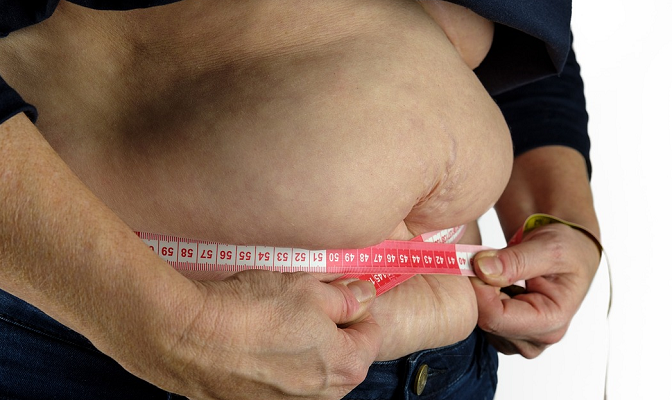There are a handful of systemic barriers to maintaining a healthy weight, but most involve cramming more food into your face than your system can handle. From to much food to food that’s bad for you, less of that is not a bad idea no matter what you weigh, but some public health experts are pushing in the other direction.
It is old-fashioned to think of weight as something to be managed with diet and exercise. What if it wasn’t? I worked with a cardiac nurse who says she eats more and weighs less after meeting with someone who is an expert on food and human health. Your primary care physician is probably not that expert, and they are not permitted to ask you about your weight, at least not until you have a serious health complication caused by that weight.
Instead of connecting people to people who can help them with their diet, the next best step is drugs and surgery.
My diet was never great, but my work always included a level of activity that allowed me to eat nearly anything. I burned it off so quickly that weight gain was never an issue. At some point, after both my job and I became less vigorous, I discovered that unknown to me, one of my hobbies was collecting plaque in my arteries. After an ambulance ride and two stents later, my diet got a lot better. I lost some extra pounds I didn’t need (though I was never even technically overweight), and at the age of sixty, I’m in a place I’d likely never have been had my body not shouted at me about it.
Staying in that place demands my attention, so the idea of everyone’s doctors being instructed to bail on the more traditional exercise, less food, and better food schemes for weight loss is disturbing. While cardiac issues might not be a foregone conclusion for the overweight and obese (unless they got jabbed twice or more), a host of other issues (around 200 of them) are more popular than ever. Type 2 diabetes is all the rage. If you have diabetes, you are at increased risk for heart disease, so that’s one way to get there from here. Is it too much to expect your patients to find the discipline to eat less or eat better and move more?
What are the odds they’ll be any more mindful of the need to take the medications you prescribe them, or are you even allowed to care?
Have you ever tried to take medication or injections regularly for the rest of your life? It’s not as easy as it sounds; it is also a lot more expensive, but that’s the new formula for weight loss success. Instead of adopting better habits, you need to remember to take the pills they prescribed you.
People in developed countries will no longer have severe or complex obesity in the future because of medical advances – but telling people to eat less and move more is not a treatment, a leading expert said yesterday.
Professor Donal O’Shea told doctors they must change their messaging to obese patients
Professor Donal O’Shea told doctors they must change their messaging to obese patients. “Eat less, move more is not the treatment of obesity – get over it,” he said. “Prevention is different from treatment.”
Speaking at the annual meeting of the Irish Medical Organisation (IMO), Prof O’Shea said there are 198 determinants of obesity and they fall in to seven groups – five of which are outside people’s control. …
The only line patients feel is acceptable from doctors is: “Is it OK to discuss your weight today?” said Prof O’Shea, who runs the obesity service in Loughlinstown Hospital, Dublin, and is the HSE lead on obesity.
Doctors could say: “Where are you on your weight journey?”
And no, he’s not thinking about Ozempic. He is looking past that to bigger and better chemical treatments for the chronically overweight. These are choices that will likely be incredibly expensive – at least initially – with some unwanted side effects. Much like it is with many meds, the argument will be that the good outweighs the bad. Maybe don’t use the word outweighs. It’s insensitive. Whatever the words you use, one of the known side effects is enriching big pharma. The mRNA platform taught us that. Medically unnecessary complications are necessary to ensure compliance and profits.
Kickbacks don’t kick themselves back, right Tony Fauci?
Alternatively, we could point ourselves back toward a culture that values hard work, exercise, and a bit of dietary discipline over a quick fix that lets you keep eating pizza on the couch. If things go sideways, it’s a short trip from where we are back to those values. Learn to farm and fight or die—size matters, not.
And no, I’m not averse to solutions to obesity for people who have a rare genetic disposition or even ‘addicts’ who need some short-term help. Still, the majority of overweight folks are victims of bad advice from food experts in the government and regulations that make it cheaper to mlousy bad food than good, alongside a culture that lionizes excess at the expense of everything else. I like couches and pizza, but had I known I was an artery plaque hobbyist; I’d have made changes before my heart tried to kill me and saved myself a lot of money and bother on maintenance medication.
Deciding that obesity is a disease and not just a bad habit and that drugs and surgery are the better solution to this burgeoning health crisis smells more like marketing than medicine. Although to be fair, there is a reasonable argument that this is also true of how they treat heart disease.
